The Speaker of the Assembly of the People's Representatives (parliament), Ibrahim Bouderbala, decided on April 11 to enable representatives of public, private and foreign media to cover the work of the sessions considering the draft rules of procedure, starting April 15. This comes following widespread condemnation and protests against the decision to prevent private and international media from covering the parliament's opening session and the plenary session.
The new Tunisian parliament, elected by only 10% of the Tunisian people, has had an unfriendly relationship with the media since its inauguration and the convening of its opening session. On March 13, 2023, journalists and the media were surprised by the ban against all journalists covering the activities of the session as usual, in a "clear strike against press freedom and a systematic and clear exclusion of the people's right to follow the proceedings of the session in a timely and public manner, despite the importance of this event," according to the journalists.
The Assembly of the Representatives of the People opened its doors to receive new MPs, after a one-year and eight-month closure, following the decisions of President Kais Saied, to suspend the work of the previous parliament and move on to legislative elections organized by a new electoral law. However, these doors remained closed to local and foreign media, raising many questions about the reasons for these unjustified exclusionary practices towards the media, and the motives behind the policy of silencing public opinion that has been adopted by the legislative authority.
Whose fault is it?
Despite the admission of the head of the Internal Oversight Committee in parliament, Imad Awlad Jibril, that preventing journalists from covering the opening session is a mistake of unknown origin, and his pledge that all media and civil society components have the right to access the dome of parliament, while stressing that the parliament does not work in 'dark rooms', the presidency of the Assembly of the People's Representatives had decided on April 10 to prevent private and foreign media from keeping abreast of the proceedings of the plenary session dedicated to considering and covering the draft rules of procedure, provided that only live television broadcasts are provided via the official TV channel and the Council's YouTube channel and covered by public media institutions.
"A Parliament that fears the press"
The decision to prevent certain media outlets from covering the course of events in parliament was met with collective rejection and sharp criticism by journalists and those who support freedom of press and expression. The Tunisian Journalists Syndicate said in a statement that this decision "represents a clear violation of the provisions of the Tunisian constitution related to ensuring freedom of information and publication, and constitutes an attack on the right and access to information, the principles of transparency and oversight over the work of elected councils. It also reinforces the policy of opacity previously pursued by the executive authority, and that the legislative authority continues to implement." The syndicate not only condemned and rejected the decision, but also called on all journalists to boycott the work of the session to ratify the draft rules of procedure, and also called for a protest in front of parliament to demand the right of journalists to access the parliamentary council.
The decision to ban certain media outlets from covering events in parliament was met with collective rejection and sharp criticism from journalists and those who support freedom of press and expression
For its part, the governing body of the Tunisian Federation of Newspaper Directors (FTDJ) saw that excluding journalists belonging to private and international media institutions as well as civil associations from covering parliamentary plenary sessions is an unjustified decision, expressing solidarity with the journalists and photographers targeted by this measure.
Meanwhile, Abderraouf Bali, a member of the executive office of the Tunisian Journalists Syndicate, confirmed that "according to statements by Parliament Speaker Ibrahim Bouderbala, at the beginning, preventing journalists from covering the activities of the opening session was not a decision by parliament, but of another party," which is likely to mean the executive authority.
However, after the decision to prevent journalists from covering the plenary session, it was confirmed, according to the spokesman, that the parliament's office "opposes the presence of journalists in a free and independent manner, and this indicates that the parliament's office is trying to set a narrow the framework for the movement of journalists in parliament before allowing them to return to work, which is an attempt to restrict press freedom in Tunisia and comes in the context of a number of other attempts."
Speaking to Raseef22, Bali said that the legislative authority's fear of the press questioning and investigating, and the journalist's insistence on searching for information related to any file, was worthy of note and indicates that the parliament is capable of embellishing live broadcasts via YouTube or social networking sites, and so the only problem that remains in this regard is the press.
Some are accusing the executive authority of being behind the decision to ban Tunisian journalists and "foreign journalists"
He also pointed out that journalists belonging to public media were present at the protest and expressed their rejection of the insult directed at them by the Speaker of Parliament, because his statements about the public media hint that it is subordinate to the executive authority, and subject to its will, and this is an insult to journalists in the public sector who were offended more than their colleagues who were banned from attending.
The speaker believes that preventing a journalist from covering parliamentary activities is an honor for a free journalist, but speaking of public journalists as if they are subordinate to the authority, strips them of their status and turns them into publicists, just like the national television has been turned into a propaganda mouthpiece for the existing authority.
He also believes that there are efforts to strike the public media and turn it into an obedient tool, but journalists have confirmed through their positions that they are not an affiliated or subservient media, but rather a free and independent media that defends its independence.
Avoiding a 'negative image' at all costs
There was a lot of information on the reasons for excluding journalists from covering the council's work, and the adoption of a policy of discrimination between public and private media. Statements about the parties behind this decision aimed at neutralizing the media, confiscating the right to access information, and concealing the course of events under the dome of parliament, have been conflicting. The exclusion of journalists is a precedent in the history of post-revolution parliaments. Its main motive is to avoid criticism of the performance of deputies and covering up possible slips, which stems from the fear of some parties of repeating the experience of the former parliament, which was characterized by farcical behavior and exchange of violence, and established a bad image of the legislative authority in the eyes of the people who elected its members to represent them.
The reasons for the decision to prevent journalists from entering parliament have no legal basis, and the internal rules of procedure give them the right to enter the legislative institution
Parliamentary journalist Sarhan al-Sheikawi confirmed that journalists were prevented from entering the parliament headquarters on various grounds, the most important of which is the lack of a legal text regulating their entry, in reference to the internal rules of procedure. However this factor is a very weak argument for several reasons, the most important of which is that Article 62 of the new draft rules of procedure related to the entry of journalists and the transparency of sessions is subject to consensus within the committee on the rules of procedure and in most parliamentary groups. Therefore this consensus could have been relied on to allow journalists to enter.
Speaking to Raseef22, al-Sheikawi believes that journalists being allowed entry under pressure from a large number of deputies has been acknowledged, which confirms that the entry of journalists to the parliament headquarters is a given adopted by a large number of deputies, which makes it easy to pass the necessary measures related to this issue. However, the problem remains in attempts to prevent such access in the future, because according to some leaks from inside the parliament, the designated areas for the movement of journalists inside will be determined and they can be prevented from attending certain plenary sessions and committees for various reasons.
The decision to ban journalists from entering parliament does not affect the work of the journalist as much as it affects the citizen's right to information
The parliamentary journalist stressed that the presidency of parliament is afraid of conveying a negative image of the work of parliament and its MPs, and this fear was one of the most prominent reasons for excluding journalists, but it would have been more appropriate to control the behavior of MPs rather than ban journalists, as the problem lies in bad behavior and misconduct, and not in it being broadcasted. He also believed that preventing journalists from entering the dome of parliament is an attempt to avoid repeating the same image that was conveyed from previous parliaments, which was a direct cause of deepening the gap between Tunisian public opinion and parliament as an official institution that was supposed to be a representative space for the will and concerns of the citizen.
Raseef22 is a not for profit entity. Our focus is on quality journalism. Every contribution to the NasRaseef membership goes directly towards journalism production. We stand independent, not accepting corporate sponsorships, sponsored content or political funding.
Support our mission to keep Raseef22 available to all readers by clicking here!
Interested in writing with us? Check our pitch process here!
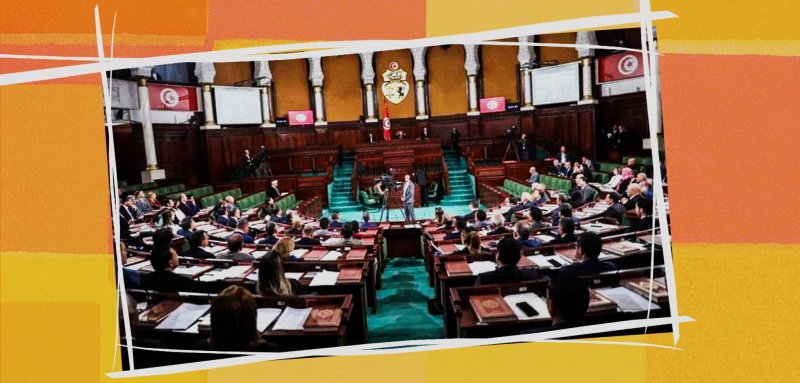
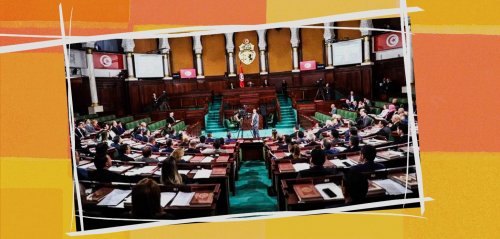
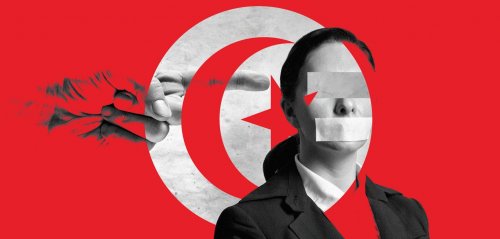
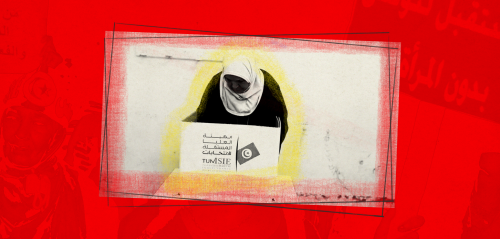
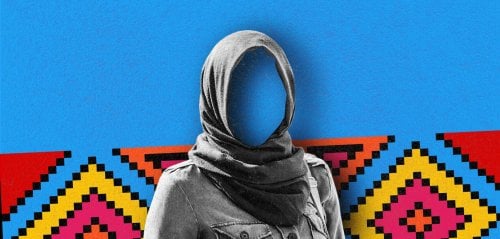



Join the Conversation
ذوالفقار عباس -
28 minutes agoا
Hossam Sami -
1 hour agoصعود "أحزاب اليمين" نتيجة طبيعية جداً لرفض البعض; وعددهم ليس بالقليل أبداً. لفكرة الإندماج بل...
Anonymous user -
1 day agoرائع و عظيم ..
جيسيكا ملو فالنتاين -
5 days agoزاوية الموضوع لطيفة وتستحق التفكير إلا أنك حجبت عن المرأة أدوارا مهمة تلعبها في العائلة والمجتمع...
Bosaina Sharba -
1 week agoحلو الAudio
شكرا لالكن
رومان حداد -
1 week agoالتحليل عميق، رغم بساطته، شفاف كروح وممتلء كعقل، سأشاهد الفيلم ولكن ما أخشاه أن يكون التحليل أعمق...